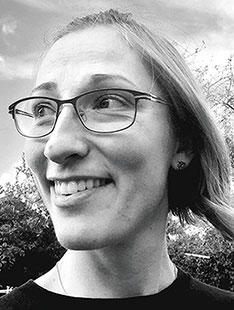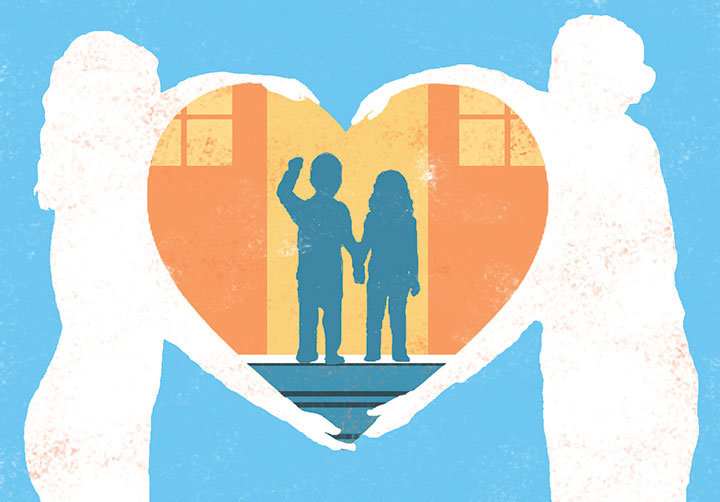Essay: Our Adoption — A Love Story
Our kids came to live with us on a Wednesday: Nov. 5, 2014. We’d known of their existence for just two days. My wife and I had completed six months of training to become therapeutic foster-care providers, but we felt less than certain that we were ready for parenthood.
Despite our trepidation, when the kids’ caseworker told us their current placement was ending immediately and they would otherwise go to a group home, we said of course they could stay with us. We took the next day off from work so we could buy pee-proof sheets and print signs for their doors with their names on them, and then — just like that — they arrived.
As they stepped onto the front porch, it struck me that G. (now 8, then 5) and A. (now 7, then 4) were the most beautiful children I’d ever met. G. had a dark, curly mop of hair and sparkling, curious eyes; A.’s long locks were tightly braided in a way I knew I would struggle to replicate. Her brown eyes were impossibly wide as she clung to her brother.

We welcomed them that night having no idea that we would be their forever home. We didn’t even know whether they would be eligible for adoption until they had been with us a year and a half. But we loved them from the start, and when we discovered our family could be made permanent, we hastened to make it so. The adoption process has taken over a year, and its conclusion is finally on the horizon.
Over the last three years, our kids have grown tremendously, and we’ve been working on becoming the parents our kids need. Throughout, we’ve heard a lot of admiration for our choice to become a family. “Your kids are so lucky to have you!” We’ve also heard a lot of disbelief. “I don’t know how you do it. I could never ... . ”
It’s true that parenting is hard. I don’t think any parent would disagree. Parenting kids suffering from developmental trauma (i.e., neglect and abuse at an early age) is even harder. And maybe we are particularly suited to this — maybe it is something most people couldn’t do, and we’re heroes. But I don’t really believe that. In my mind, therapeutic foster care and open adoption are routes that more people ought to consider and social systems ought to support.
All kids deserve to grow up in an environment where they can feel safe and can mature into the fullest expressions of themselves. And, for a variety of personal and societal reasons, not all adults can create those environments. My wife and I decided we would do our imperfect best to provide what our kids’ biological family wasn’t able to and also to expand our family to include theirs. (As we say, it’s not a family tree, but rather a family forest.)
Intervening when traumatized children are still young makes it less likely that they will require significant interventions later in life. It makes children less likely to pass on the unhealed trauma, as our kids’ parents did. Keeping kids safe is not only a huge benefit to the particular youths who land in well-resourced homes, it’s a benefit to the entire community.
Our kids aren’t just our kids. They are all of our kids. What happens to them (not to mention their peers, many of whom are on waiting lists for foster placements due to a shortage of willing families) affects us all. What’s more, when actively supported to heal their wounds, the children who come from the hardest places can become the most compassionate and contributing members of society.
There’s no shortage of opportunities to help improve our kids’ collective prospects, and every one of us is called to take positive action of some kind. In my eyes, the commitment we’ve made to our children is one of the most powerful investments we could have made in the future. Showing up for G. and A. every day is not easy, but it’s absolutely worth it.
This journey thus far has proven to me beyond a doubt that love is a verb — perhaps the most powerful one there is.












No responses yet